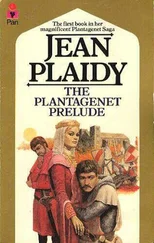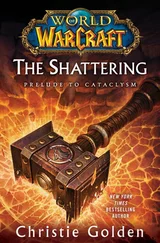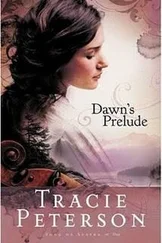Gerald Kersh - Prelude To A Certain Midnight
Здесь есть возможность читать онлайн «Gerald Kersh - Prelude To A Certain Midnight» весь текст электронной книги совершенно бесплатно (целиком полную версию без сокращений). В некоторых случаях можно слушать аудио, скачать через торрент в формате fb2 и присутствует краткое содержание. Жанр: Старинная литература, на английском языке. Описание произведения, (предисловие) а так же отзывы посетителей доступны на портале библиотеки ЛибКат.
- Название:Prelude To A Certain Midnight
- Автор:
- Жанр:
- Год:неизвестен
- ISBN:нет данных
- Рейтинг книги:3 / 5. Голосов: 1
-
Избранное:Добавить в избранное
- Отзывы:
-
Ваша оценка:
- 60
- 1
- 2
- 3
- 4
- 5
Prelude To A Certain Midnight: краткое содержание, описание и аннотация
Предлагаем к чтению аннотацию, описание, краткое содержание или предисловие (зависит от того, что написал сам автор книги «Prelude To A Certain Midnight»). Если вы не нашли необходимую информацию о книге — напишите в комментариях, мы постараемся отыскать её.
Prelude To A Certain Midnight — читать онлайн бесплатно полную книгу (весь текст) целиком
Ниже представлен текст книги, разбитый по страницам. Система сохранения места последней прочитанной страницы, позволяет с удобством читать онлайн бесплатно книгу «Prelude To A Certain Midnight», без необходимости каждый раз заново искать на чём Вы остановились. Поставьте закладку, и сможете в любой момент перейти на страницу, на которой закончили чтение.
Интервал:
Закладка:
‘There was no ill feeling?’
‘Ill feeling? Why should there be ill feeling?’
Yet who knew? Boxers are beaten about the head. The Tiger Fitzpatrick, for example, was not what you might describe as sane. People like Ovid Moffitt, George Cheese, Beeps Wilking or Bubbsie Dark might do anything; let alone the man that was not quite a man — the one called Hemmeridge. God only knew.
Consider Soskin, the dentist. What kind of a man became a dentist? Dentists worked backwards, in reverse. Dentists approached things in a mirror — like actors. Of all the men that held absolute power for their brief moment, dentists were supreme. Asta remembered one afternoon when, while Soskin was. drilling a hole in one of her teeth, she rolled up her eyes and saw him looking down at her with what seemed to be an abominable smile. It was true, she realized, that she had been looking at his face upside down. Still, how was one to know? How was it possible for a man deliberately to choose to be a dentist?
And Tony Mungo? There again was a man who, if one watched him carefully, might be suspected of any secret excess. He liked to play tricks with people. She detested Tony Mungo. He knew a great deal about natural history, and on Saturday afternoons loitered about the Museum in South Kensington. Sooner or later, someone would try to tell him something: then Mungo would seem ignorant, wait until the other man had finished and then let loose such a flood of factual information as swept the informant away in shameful disorder.
Geezle, again, was a tattooist. What kind of a man was this that could live by pricking out patterns upon the bodies of his fellow men? Concerning Roget, who took care of his mother — he was waiting for her to die, and dared not to get himself a wife for fear of offending her. In such a man, surely, a thousand things were bottled up — bad things, dirty things.
Again, there was Alan Shakespeare, with money of his own; completely idle, useless; a bored man. Could there be anything Like boredom for breeding viciousness?
Take the case of Goggs, the pork-butcher, the charcutier, or sausage-maker. There, potentially, was something evil. Why should he choose the business of killing pigs and grinding them up into mincemeat and stuffing their muscles into their own entrails? Why should he do it? And why should this squat, thickset man with hacked hands put on a gentleman’s clothes before and after work, and hang about the Bar Bacchus?
Also, there was something sinister about Irish John Smith, the one that called himself Sean Mac Gabhann. What was he after? Why was he hiding himself? Why the pseudonym? Surely he was a man who pretended — and all the world knew that he was a liar — to have killed his man in the Troubles. Such a man was playing a deep and violent game. If he wanted to seem violent, he wanted to be violent. If he wanted to be violent, why wasn’t he? Because he didn’t dare to be. Such a man surely might pick on a child in a fog?
Any man might pick on a child in a fog…
25
Here they were — the secretive Baronet Thirst; the literary slasher Osbert; Shocket the General of face punchers; Titch Whitbread the def eater and at the same time the defeated. There was the persecuted-by-vocation, Monty Bar-Kochba; the hater and the hated.
The man Soskin chose to pull out teeth for a living. Goggs pretended to be proud of being a professional butcher, yet tried to look like something else when he wasn’t slitting pigs’ throats. Mungo? When all is said and done, a man who finds pleasure in other people’s discomfiture is a cruel man, a man animated by a mean little lust for power at the expense of another.
There was Geezle getting his living out of degenerates — for apart from old soldiers and sailors, no one but a degenerate goes and gets his skin pricked out with dragons and snakes and butterflies.
Roget? Anyone who is waiting eagerly for another person to die is murdering that person in his heart — he has the makings of a killer somewhere inside his timid watchful self.
Mr Shakespeare? He would do anything for a new sensation, perhaps even murder. When a man dulls his sensibilities with excess, the time always comes when he feels the need for blood, for violence.
For the love of God, how was one to know?
Detective-Inspector Turpin was above suspicion, of course.
Yet why of course? Strategically, who could be better placed for murder than a policeman? The police constable on the beat could have done it. Who would a little girl trust more completely than a policeman?
The fire was dying, and it seemed to Asta that the bedroom was dark and cold as interplanetary space. The headlights of a passing car shot a streak of white light in at the window. She was alone, alone and helpless, a fat, foolish, obstinate, ageing woman; and everybody laughed at her as soon as her back was turned. They called her the Battleaxe, she remembered. Until this moment she had been rather proud of the nickname. It suggested the Crusader — Godfrey, Richard, Raymond; Bohemund roaring at the head of that last mad charge. That suicidal hopeless charge nevertheless smashed the gathered might of the Infidel.
Such thoughts as this had stirred her blood. But tonight it seemed that the darkness was full of sly little voices shyly sniggering. ‘God, be kind to a foolish, fat woman who doesn’t know what to do. Tell me what to do, please, Lord God!’ she said aloud.
No answer came out of the dark. There was only the tired tinkle of the dead embers under the dying fire.
She willed herself to relax, ordered herself to pull herself together, and commanded herself to count slowly up to a hundred and go to sleep.
1…2…3…4…5…6…7…
— It could be Milton Catt!
No, none of that! … 11 … 12… 13… 14… 15… i6 17… 18… 19…
— Graham Strindberg!
Ah-ah! Keep hold of yourself, Asta! … 20… 21… 22…23 … 24 … 25 … 26 … 27 … (Be calm, calm, calm) … 28 … 29 …
— Or little Mr Scripture, why not?
No. Sleep, sleep, Asta, you must sleep! … 30… 31 … 32… 33… 34…35 … 36…
The world spun itself into a smoke ring, and this ring spinfling slower and growing greyer slid into the shape of a stretchedout heart; and this stretchedout heart pushed a pale tendril into a cold black wind which took hold of the whole and sucked it away into nothingness, and then Asta was walking on something that felt like cotton. She was in a street. The houses were nightmarishly constructed of whorls and coils of creeping smoke. Amorphous, strangely flabby-looking clouds, or lumps, of this smoke pushed out tentacles. They writhed and heaved themselves into unimagined squid-like forms.
The belly of one floating vaporous octopus cracked open and disclosed four vacant black eyes… and the eyes became windows, and the tentacles, moving like the hands of a Javanese dancer, described the structure of a disintegrating house, an abandoned, crumbling house that danced and quivered like a mirage. But this mirage, in this desert of mist, was not born of light but of darkness; and not of heat, because it was deadly cold.
Asta was afraid. She wanted to go away, but she had to go on. As she went, she heard a secretive whisper, and she knew that if she looked back she would see that the street had closed behind her. But she dared not look back. Yet she knew that the dead house with doric columns on the left and the ghostly house on the right with the Byzantine dome that palpitated as if it were alive had slid into each other and were following her. She knew that she was going to a certain house, ten paces down this hellish street. She struggled with all her might to stand still, but she was compelled to go on. The squat, four-eyed, fantastic houses slipped together behind her, cold and pale and quiet as jelly, so that she knew that if she turned — if she could turn — she would find herself stuck for ever in a clammy wall of congealed mist that had the power to form disgusting shapes. There was no turning. And here was the House.
Читать дальшеИнтервал:
Закладка:
Похожие книги на «Prelude To A Certain Midnight»
Представляем Вашему вниманию похожие книги на «Prelude To A Certain Midnight» списком для выбора. Мы отобрали схожую по названию и смыслу литературу в надежде предоставить читателям больше вариантов отыскать новые, интересные, ещё непрочитанные произведения.
Обсуждение, отзывы о книге «Prelude To A Certain Midnight» и просто собственные мнения читателей. Оставьте ваши комментарии, напишите, что Вы думаете о произведении, его смысле или главных героях. Укажите что конкретно понравилось, а что нет, и почему Вы так считаете.








![Айзек Азимов - Прелюдия к Основанию [= Прелюдия к Академии // Prelude to Foundation]](/books/435122/ajzek-azimov-prelyudiya-k-osnovaniyu-prelyudiya-k-ak-thumb.webp)



